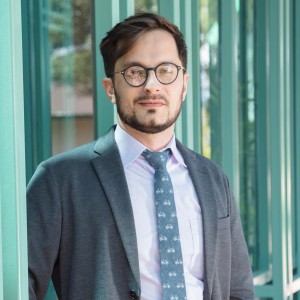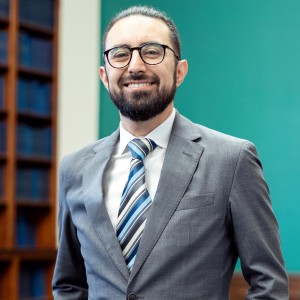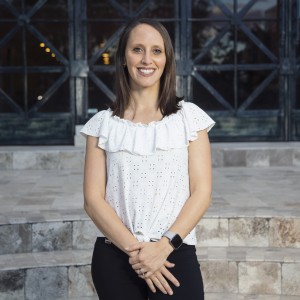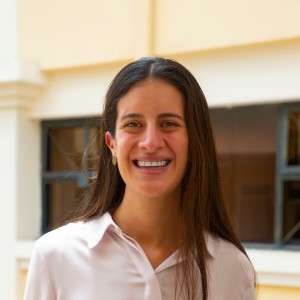Instituto de Medicina Social & Desafíos Globales

The Institute for Social Medicine & Global Challenges IMS&DG is a multidisciplinary centre of excellence of academics, dedicated to research on public health and nutrition problems and their determinants, for the support of prevention and health promotion activities, the training of professionals, and the evaluation of global health, nutrition and development intervention programmes.
The team is composed of professionals in different areas of public health, nutrition, medicine and the social sciences. We collaborate with local groups and communities, sectional and national governments and international technical cooperation agencies.
- Access to and use of health services.
- Assessment of health and nutrition status in different population groups.
- Health status and well-being of older adults.
- Intercultural health: health, ancestral therapeutic practices and community health in indigenous populations.
- Mental health in indigenous populations.
- Social determinants of health.
- Food security.
- Social Dentistry
- Social veterinary medicine
- Digital Linkage
- Ecogastronomy and Food Sovereignty
- Learning and Service in Health
- Informatics and Health
- Impact Evaluation.
- Qualitative research.
- Conducting local, regional or national surveys.
To promote, in an inclusive, multidisciplinary and free manner, research, community outreach, continuing education and social entrepreneurship in public health and nutrition from a One Health perspective.
To become a centre of excellence in issues related to public health and nutrition, incorporating teaching, promotion and prevention in alliances with local, national and international partners and under the principles of ethics, inclusion, transparency and freedom.
Staff
Jonathan Guillemot
Director
jrguillemot@usfq.edu.ec
Hayek, H103J
María Augusta Vélez
Vicedirectora SIPAM
mavelez@usfq.edu.ec
Viviana Guachamín
Lider Lab. Odontología Social
vguachamin@usfq.edu.ec
Pedro Gallegos
Lider Lab. Pedagogía de la Investigación & Producción Científica
pgallegos@asig.com.ec
Tadeo Ampudia
Lider Lab. Interacción Audiovisual, Multimedia y Social.
rtampudia@alumni.usfq.edu.ec
Vanessa Romero
Lider Lab Manejo Multidisciplinario de enfermedades raras
vromero@usfq.edu.ec
Alex Aguire
Lider Lab Vinculación Digital
+593 98 721 7671
asaguirre@asig.com.ec
María José Garcés
Lider Lab Vinculación Digital
+593 99 827 7117
mjgarces@asig.com.ec
Andrea Chávez
Administrativa
achavezg@asig.com.ec
Lenin Vinueza
Lider Lab. Veterinaria Social
rvinueza@usfq.edu.ec
Allpa Tituaña
Lider Lab. Poblaciones Nativas y Culturas
atituanav@asig.com.ec
Sebastían Navas
Lider Lab. Ecogastronomía Social y Soberanía Alimentaria
snavas@usfq.edu.ec
Gabriela Bustamante
Lider Lab. Equidad en Salud
gbustamante@usfq.edu.ec
Sol Palacios
Lider Lab. Aprendizaje y Servicio en Salud
spalaciosp@usfq.edu.ec
Mishell Barreno
Lider Lab Vinculación Digital
+593 96 799 8813
mbarreno@asig.com.ec
Antonio Altamirano
Lider Lab. Informática y Salud
aaltamirano@estud.usfq.edu.ec
Research
- Academic Writing Tool - Lab. Research Pedagogy
- Helpline - SIPAM
- Bedding Kit - SIPAM
- Brucellosis reservoirs in animals, domestic, wild and human transmission - Lab. Veterinary Social
- Presence of antibiotics and heavy metals in domestic and wild animals and foodstuffs - Lab Veterinaria Social
- Remote CAMD (Carers of the Elderly Certification) - SIPAM & Lab. Multimedia & Audiovisual
- Exploration of Current Ecuadorian Databases - Lab. Digital Linkage
Publications
- SABE I and II (2010-2011). In agreement with the Ministry of Economic and Social Inclusion and the National Institute of Statistics and Census, the First Survey of Health, Well-being and Ageing in Ecuador in Older Adults (SABE I) and an analysis of the health and nutrition situation of older adults through biomarkers (SABE II) were carried out.
- Health and Well-being of Indigenous Older Adults (2011). In agreement with the Pan American Health Organization and HelpAge International, a qualitative research was conducted on health status, access to health services and family support networks in indigenous communities in the Ecuadorian highlands. Health and well-being of indigenous elders
- Research on the effects of pesticides on pregnant women working in flower farms in Cayambe and Tabacundo, Ecuador and their newborn children (2010-2012). Collaboration with the University of New Mexico; funded by the US National Institutes of Health.
- Evaluation of the impact and outcomes of the Italian-Ecuadorian Fund Programme (2011). ISYN evaluated the effects of 104 projects in health, education, production and water, sewerage and sanitation services through an innovative methodology called the Information and Ratings Manager, which allows for a multidimensional analysis of the components of each project and the entire programme.
- Analysis of the health impact of a hydroelectric project on the Guayllabamba River between the provinces of Pichincha and Imbabura, Ecuador (2010-2011). Multidisciplinary study of the effects of the construction of the Manduriacu dam on the local population.
- Chis-paz Health Project. 2008. In agreement with the Aliméntate Ecuador programme of the Ministry of Economic and Social Inclusion, a pilot project was carried out to eliminate iron deficiency anaemia in children aged between 6 months and 2 years in a rural area of the Ecuadorian highlands. Through the provision of a fortifier and a process of promotion through social marketing techniques with a strong focus on breastfeeding, the prevalence of anaemia was reduced by 20% in just 2 months. In Ecuador, 50% of children are anaemic, and this process is now being implemented nationally. The programme is now being implemented nationally.
- Perceptions of malaria on the agricultural frontier in the province of Sucumbios in the Ecuadorian Amazon (2008-2009). Qualitative research in indigenous and settler communities on perceptions related to malaria as a product of the expansion of the tropical agricultural frontier.
- Prevalence of malnutrition in patients at the Carlos Andrade Marín Hospital in Quito (2007). This research determined the prevalence of malnutrition in adult patients hospitalised for various causes.
Services
CAMD (Certification of Informal Caregivers for Older Adults), in collaboration with SIPAM
Alliances
Organisation Name: Transform Health Ecuador
Country: Ecuador
Type of collaboration: Coalition
Organisation Name: Washington University
Country: United States
Type of collaboration: Co-research
Organisation Name: Cornell University
Country: United States
Type of collaboration: Co-research
Organisation Name: Tech without Borders
Country: United States
Type of collaboration: Strategic alliance between non-competing organisations
Organisation Name: Rutgers University-Newark
Country: United States
Type of collaboration: Co-research
Events
- Workshop "Health Targeted Food Security: Essential Foundation of Global Public Health Challenges and Solutions" - April 2022
- LGBTI+ Health Conference -May 2022
- Prevention of Vector Borne Diseases- JULY 2022, Galapagos
- REMOTE CAMD Pilot- September 2022
- Workshop on Ultraprocessed Foods, collaboration with Dr. Carlos Monteiro and the Latin American Society for Health and Nutrition SLAN - September 2022
- Workshop "Social and Geographic Inequities: STUDIES IN HEALTH" - October 2022
- Virtual Colloquium: Online Census - October 2022






